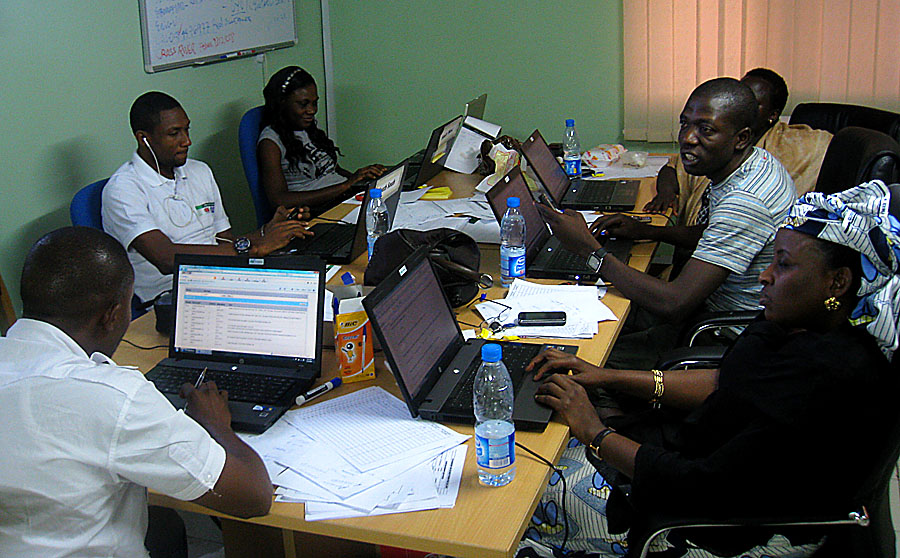When do you tune in? Before the voting begins

Elections cannot be separated from the broader political context of a country, and efforts to protect electoral integrity must examine how pre-election or post-election developments uphold or negate the democratic nature of an election. i.e. “Elections are a process, not a one-day event.”
Those who control state institutions and resources, or organized means of bribery and intimidation, can try to manipulate election processes before the voting begins, in a multitude of ways: blocking opponents right to stand for office; stopping candidates from campaigning for votes; denying qualified electors the right to cast ballots, etc.
For this last reason and others, the Swift Count Project (@swiftcount) in Nigeria, ahead of three rounds of elections in April, deployed nearly 1,000 observers to all 774 Local Government Areas (LGAs) of the country to independently and impartially monitor the re-registration of every voter, in a country of 155 million citizens.
To collect the necessary data, the Project utilized an SMS reporting system to gather responses to 4 different forms, each with an average of 20 questions, ultimately processing 24,000 text messages from stationary and mobile observers. The data collection system was built using RapidSMS, an open-source framework used with mobile phones, employed a local “aggregator” to manage one shortcode for all mobile providers, and had software modified by a Lagos-based Nigerian developer.
The rapid-response system enabled these impressive reporting statistics:
- 99% response rate for stationary observers, representing 5,508 reports out of an expect 5,586 through 7 observation days.
- 1,168 critical incident reports received from 159 mobile observers (11 National Steering Committee members, 37 State Coordinators and 11 State Deputy Coordinators)
These efforts allowed Swift Count to provide quantitative analysis of multiple electoral exercises, Registration and Display (graphs!). Their qualitative review sought to instill confidence in the process, and stated: “As is widely known, the voter registration exercise started extremely poorly, but has significantly improved.”
In a country where institutions are widely mistrusted, striving for the “freest and fairest elections”, will build confidence, and place the true candidates of the people in office.
For Election Day, Project 2011 Swift Count will deploy approximately 8,000 observers to a representative random sample of polling stations allowing them to collect, analyze and share comprehensive information on the conduct of elections, and to verify the accuracy of the officially announced results.
